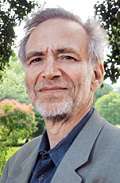
La especie espiritual
por qué las creencias son parte de la naturaleza humana
Konner, Melvin
A certain faction of intellectuals has been predicting the demise of religion and the end of faith since at least the 18th century. If the latest predictions in this regard were correct, they would be the first to be. The vast majority of the world's population is religious. There is evidence that religious people are happier, more altruistic and cooperative (at least with their co-religionists) and healthier than those without faith. Melvin Konner, a brilliant anthropologist, examines the nature of religiosity and how it shapes and benefits humanity. This book is a scientist's response to the attacks on the faith of some authors and philosophers, a firm rebuke to the "Four Horsemen": Richard Dawkins, Daniel Dennett, Sam Harris and Christopher Hitchens, known for writing about religion as something irrational and ultimately harmful. Konner, raised as an Orthodox Jew but has lived his adult life without much faith, explores the psychology, development, brain science, evolution, and even the genetics of the various religious impulses we experience as a species. By granting that faith is not for everyone, he views religious people with an understanding gaze. His own upbringing, his learning of the various religions (such as that of the Bushmen), and his friendship with people of the Christian, Buddhist, Hindu, Muslim, and other religions have shaped his outlook. Konner argues that religion does both good and undoubted harm, and that for a large part of humanity at least, the belief in the invisible cannot and should not disappear.
- Author
-
Konner, Melvin
- Subject
-
Human sciences
> Religion and mythology
- EAN
-
9788418089053
- ISBN
-
978-84-18089-05-3
- Edition
- 1
- Publisher
-
Almuzara
- Pages
- 256
- High
- 24.0 cm
- Weight
- 15.0 cm
- Release date
- 04-09-2020
- Language
- Spanish
- Series
- Ensayo



